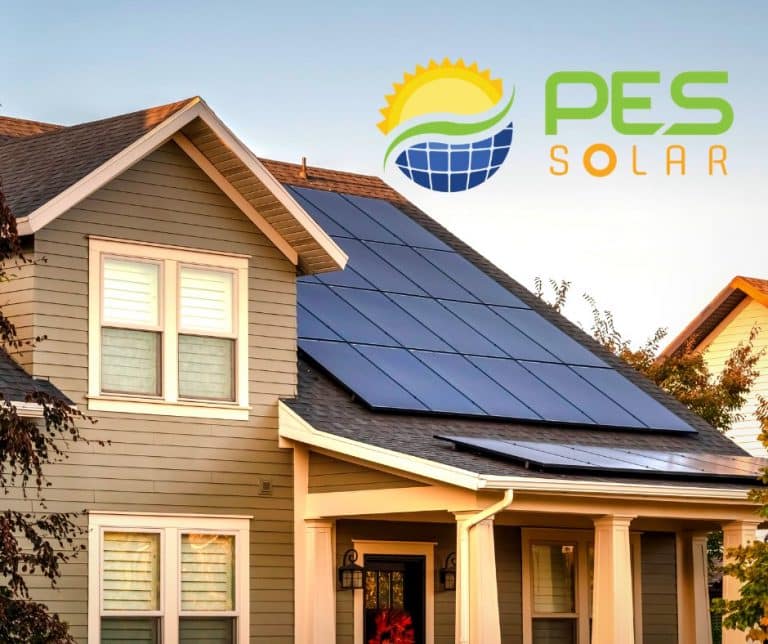Ready to embrace solar power and gain energy independence? Call our PES Solar team at (800) 650-6519 today!
With the constantly rising prices of heating and cooling bills, making the switch to solar power can seem like a smart choice for any Floridian. Homeowners who choose solar panel installation by PES Solar can save hundreds of dollars annually, allowing them to recoup the cost of their investment over time.
If you’re ready to give solar a try, though, you may find yourself quickly overwhelmed by your options. What’s the difference between all of these types of solar systems, and which one is right for you? Our PES Solar team is here to answer your questions and help you choose the solar system that’s best for your needs.
1. Monocrystalline
Monocrystalline solar panels are one of the most popular solar systems for homeowners today. These panels have an efficiency rating of 24%, which is the highest rating available, making them a smart choice for homeowners with high energy demands.
Monocrystalline panels also boast a lifespan of 25 to 40 years, and their black coloring allows them to blend in seamlessly with many roofs and home designs. Plus, they don’t require much roof space compared to other types of panels.
However, the power and longevity of these panels come at a high price; compared to other options, monocrystalline panels are easily the most expensive. Still, they can be appealing to homeowners who don’t mind making a long-term investment.
With monocrystalline panels, each solar photovoltaic (PV) cell contains a single silicon crystal that divides into thin wafers. Homeowners have two kinds of monocrystalline panels to choose from: bifacial and passive emitter and rear contact (PERC).
Bifacial panels absorb light on both sides and are ideal for ground-mounted setups. Meanwhile, PERC panels use a conductive layer to boost energy absorption from the sun, so they work best when installed on the roof.
2. Polycrystalline
Polycrystalline panels are a mid-range option for budget-conscious homeowners who want a balance between efficiency and cost. These panels have a lifespan of 25 to 35 years and an efficiency rating of 20%.
Polycrystalline panels might not be ideal for people with small homes, as they require more roof space than monocrystalline types do. They also feature an eye-catching blue tint that doesn’t blend well with the color scheme of certain homes. Additionally, this type of panel is sensitive to heat and can output less energy when temperatures are high.
Like monocrystalline panels, polycrystalline panels contain silicon solar cells. However, polycrystalline panels produce less waste in the manufacturing process, which can be a bonus for environmentally friendly homeowners.
3. Thin-Film
Thin-film solar panels can be ideal for Floridians, as they can withstand high temperatures fairly well. Although they are the least expensive option, they also have the lowest efficiency rating at just 19%.
Additionally, their lifespan is the shortest of any kind of panel at ten to 20 years. They’re also quite delicate and don’t stand up against strong winds and hail.
These panels are black and sleek, so they won’t draw much attention. Since they output less power, homeowners will need more of them to cover their entire roof. That’s why thin-film panels are better used for portable applications, such as generating power for a boat, garden shed, or RV.
If you’re converting entirely to solar, monocrystalline or polycrystalline panels are a wiser choice.
However, if you’re still interested in thin-film panels, you can choose from three types:
- Cadmium telluride (CdTe): This material has a low carbon footprint but is difficult to recycle.
- Amorphous silicon (a-Si): Amorphous silicon has a poor efficiency rate and isn’t ideal for larger homes.
- Copper indium gallium selenide (CIGS): This material offers the highest efficiency for thin-film panels.
Options for Powering Your Solar System
After exploring the different types of solar systems and determining which is best for you, it’s time to explore your power options, which offer different levels of grid reliance.
Off-Grid
Off-grid solar systems have no connection to any utility lines, which means homeowners are fully responsible for making their own electricity. Since you’re not tied to the electric company, you can live nearly anywhere you like – even in rural locations situated far outside city limits.
However, most people who use off-grid solar also have a battery bank or gas generator to tide them over when there’s not enough sunshine to produce power. This can significantly add to the cost of your setup.
Grid-Tie
Homeowners who don’t want to give up the electric company entirely can consider grid-tie solar for the best of both worlds. With grid-tie, the power your system produces goes to the electric company, and you can withdraw it for your own use at any time. If your solar system stops working for any reason, you can still get power from the grid whenever you need it.
However, if there’s a power outage or the electric company shuts down the grid for repairs, you may temporarily lose access to electricity. Many homeowners with grid-tie systems also have a battery bank that provides power when the grid goes down.
Backup
Backup systems are similar to grid-tie systems in that they also connect to the electric grid. When an outage strikes, the system’s inverter disconnects from the grid and supplies power from the battery instead. If your home contains medical equipment or appliances that need uninterrupted power, a backup system is a must-have.
Battery backup is easiest to install when you’re first setting up your solar system. It’s possible to start with a grid-tie system and install battery backup later, but doing so can be complicated and expensive, especially if you have a larger home.
Are You Ready to Make the Switch to Solar?
If you’d like to learn more about solar installation, solar system batteries, or the different types of solar systems, contact us at (800) 650-6519 today. At PES Solar, we offer affordable solar panel installation for homeowners in Orlando, Tampa, Pensacola, and nearby cities. Give us a call and find out what the power of the sun can do for you!

